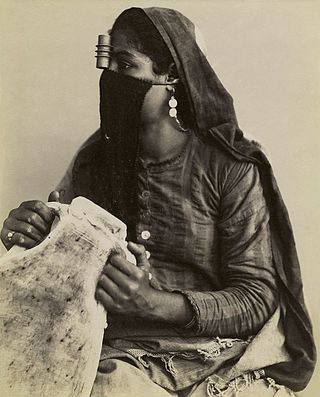Related Research Articles

The National Congress Party was a major political party that dominated domestic politics in Sudan from its foundation until the Sudanese Revolution.

Nasser Al-Mohammed Ahmad Al-Jaber Al-Sabah is a Kuwaiti politician who served as Prime Minister of Kuwait from 7 February 2006 until resigning on 28 November 2011.

Adel Osseiran, also transliterated Adil 'Usayran or Adil Osseyran, was a prominent Lebanese statesman, a former Speaker of the Lebanese Parliament, and one of the founding fathers of the Lebanese Republic.

Sheikh Ahmad Al-Fahad Al-Ahmed Al-Jaber Al-Sabah, also known as Ahmad Al-Fahad, is a controversial Kuwaiti politician, ruling family member, and disgraced former sports administrator who is the current Minister of Defense of Kuwait.

General elections were held in Bahrain in November and December 2006 to elect the forty members of the Council of Representatives. The first round of voting was held on 25 November, with a second round on 2 December 2006.
Abdullah Al-Roumi is a Kuwaiti politician and lawyer who served as the Deputy Prime Minister, Minister of Justice, and Supreme Attorney General of Kuwait. Notably, he was appointed Deputy Prime Minister in April 2021, marking the first time someone outside the ruling family held the position. Prior to his executive appointments, Al-Roumi was an elected member of the Kuwaiti National Assembly from the first district since 1985, known for his liberal and independent stance.
Daifallah Bouramiya is a former member of the Kuwaiti National Assembly, representing the fourth district. Born in 1957, Bouramiya studied public health and worked as a doctor before being elected to the National Assembly in 2003. He served as an independent deputy.

Marzouq Ali Mohammed Al-Ghanim is a former speaker of the Kuwaiti National Assembly, representing the second district. Al-Ghanim earned a BSc in mechanical engineering from Seattle University and worked for Boubyan Petrochemical Company before being elected to the National Assembly in 2006. He is the son of Ali al-Ghanim and Faiza al-Kharafi. He was elected Speaker in 2013.
Nasser Jassim Abdullah Khalifa Al-Sane is a former member of the Kuwaiti National Assembly representing the third district. Born in 1955, Al-Sane obtained a PhD in Business Administration before being elected to the National Assembly in 1992. While political parties are illegal in Kuwait, Al-Sane affiliates with the Islamist Hadas party.
Abdulatif AlـAmeeri is a member of the Kuwaiti National Assembly, representing the second district. Born in 1966, Al-Ameeri studied sharia law at Kuwait University and worked as a lawyer before being elected to the National Assembly in 2008. While political parties are technically illegal in Kuwait, Al-Ameeri affiliates with the Islamist Hadas party.
Saleh Ashour is a former member of the Kuwaiti National Assembly who represented Constituency One from 1999 until 2020 and again in 2022.
Khalaf Al-Enezi was a Kuwaiti politician who was a member of the Kuwaiti National Assembly, representing the second district. Al-Enezi worked at the National Council before being elected to the National Assembly in 1981. Al-Enezi was an Independent deputy and was on good terms with the royal family. And he lived in Kuwait.
Adel Al-Saraawi is a former member of the Kuwaiti National Assembly, representing the third district. Al-Saraawi studied accounting before being elected to the National Assembly in 2003. He is considered an Independent deputy, but affiliates with the Islamist members.
Waleed Al-Tabtabaie is a former member of the Kuwaiti National Assembly representing the third district. Born on April 4, 1964, Al-Tabtabaie obtained a PhD in Islamic studies from Al-Azhar and was an assistant professor at Kuwait University before being elected to the National Assembly in 1996. Al-Tabtabaie affiliated with the Islamist deputies.
Ali Salim Al-Daqbasi is a former Kuwaiti politician, representing the fourth district. Al-Daqbasi studied management before being elected to the National Assembly in 2003. While political parties are technically illegal in Kuwait, Al-Daqbasi affiliates with the Islamist deputies. He is on good terms with the royal family.

Kuwait National Assembly No-Confidence Votes are a process of questioning Cabinet ministers, which can lead to their impeachment. The government usually avoids impeachment through resignations, reshuffles and dissolving the legislature. Since its inception in 1962, the National Assembly of Kuwait has questioned more than 30 ministers, forcing some to resign, but only done so with a premier once on March 28, 2012.

In a predominantly Muslim society, as many as 90% of women in Egypt have adopted a form of veiling. A majority of Egyptian women cover at least their hair with the hijab. A hijab refers to a head covering that is worn by Muslim women. Although the phenomenon of wearing the niqāb, a veil which covers the face is not as common, the niqab in Egypt has become more prevalent. While a few women in Egypt wear a black niqab along with a billowing black abaya as seen in countries such as Saudi Arabia, many choose to wear different colors of the niqab or manipulate the hijab to cover their face. Regardless, the growing trend of munaqqabat, or women who wear the niqab, has alarmed the authorities. They have begun to see this dress as a security threat, because it hides the face, and because it is perceived as a political statement, a rejection of the state in favor of a strict Islamic system.
The Kuwaiti protests refers to the series of 2011–2012 demonstrations for government reforms in the state of Kuwait. In November 2011, the government of Kuwait resigned in response to the protests, making Kuwait one of several countries affected by the Arab Spring to experience major governmental changes due to unrest. The protests began with stateless people (Bedoon).

Early general elections were held in Kuwait on 27 July 2013. The elections were required after the Constitutional Court dissolved Parliament and annulled the results of the December 2012 elections. Voter turnout was an estimated 52.5%, which was higher than expected despite an opposition boycott, and only 7% lower than the non-boycotted February 2012 elections.
A political crisis evolved in Tunisia following the assassination of leftist leader Mohamed Brahmi in late July 2013, during which the country's mainly secular opposition organized several protests against the ruling Troika alliance that was dominated by Rashid al-Ghannushi's Islamist Ennahda Movement. The events came as part of the aftermath of the Tunisian Revolution which ousted the country's longtime president Zine El Abidine Ben Ali, followed by a general election which saw Ennahda win a plurality alongside Moncef Marzouki's allied Congress for the Republic (CPR). The crisis gradually subsided when Prime Minister Ali Laarayedh resigned and a new constitution was adopted in January 2014.
References
- ↑ "Arab Times -Leading English Daily in Kuwait" (PDF). www.arabtimesonline.com.
- ↑ [ permanent dead link ]
- ↑ "The New York Times - Breaking News, World News & Multimedia". Archived from the original on 2012-10-12. Retrieved 2008-12-14.
- ↑ "Kuwait not to pay citizens' debts". December 19, 2006 – via news.bbc.co.uk.
- ↑ "Arab Times -Leading English Daily in Kuwait". www.arabtimesonline.com.
- ↑ "'Iron Lady' devours griller » Kuwait Times Website". Archived from the original on 2008-10-11. Retrieved 2008-12-17.
- ↑ "Kuwait's 'Iron Lady' survives vote - USATODAY.com". usatoday30.usatoday.com.
- 1 2 "Coeducation Nears End at Kuwait University". Los Angeles Times. August 11, 2002.
- ↑ "Arab News". Arab News.
- ↑ http://www.iht.com/articles/ap/2008/02/06/africa/ME-GEN-Kuwait-Death-Threat.php [ dead link ]
- ↑ [ permanent dead link ]